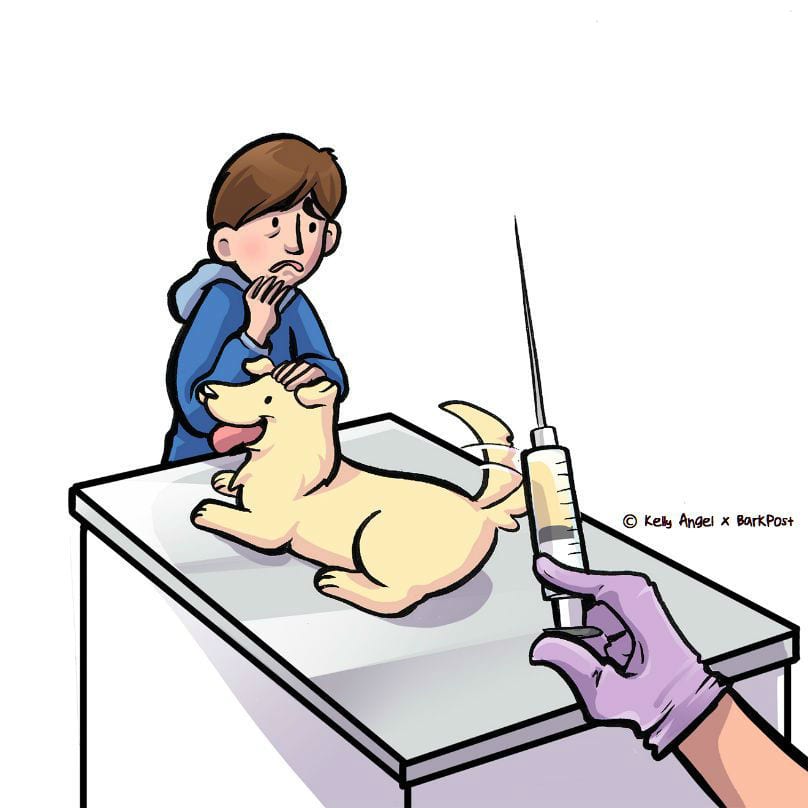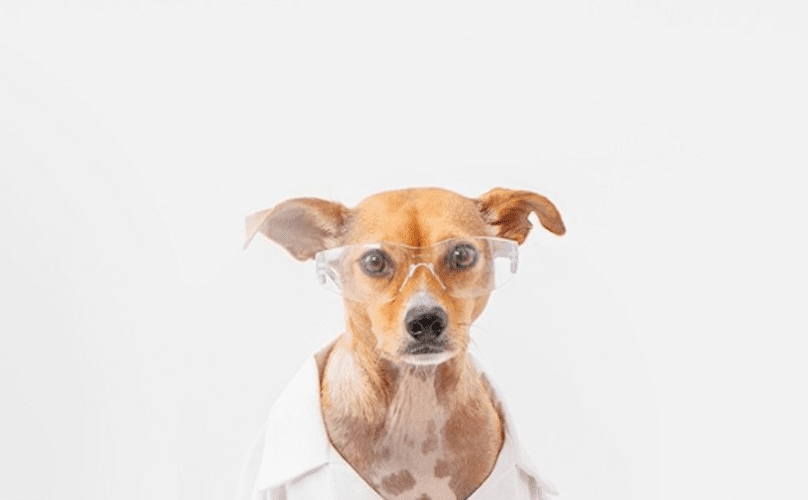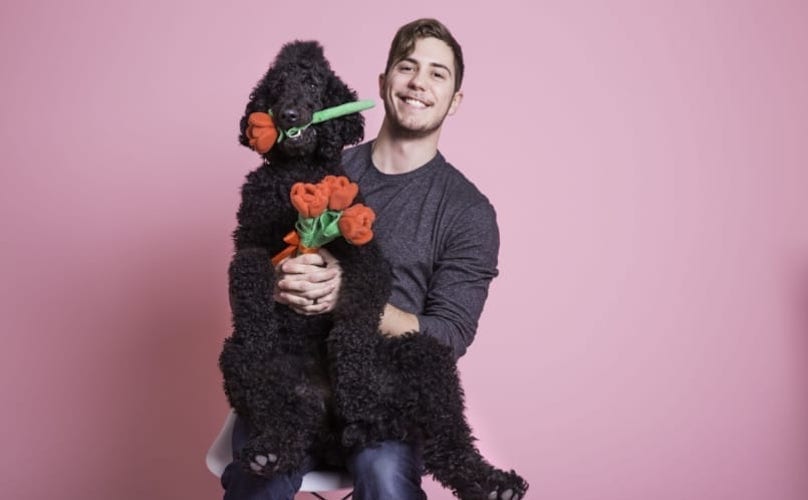So you’ve decided to get a dog. Congratulations on making the best decision any human could ever make from here to infinity! That may be a slight exaggeration, but adding a furry canine companion to your home is going to be pretty awesome!
The process of researching, choosing, and obtaining the best-fitting pooch for your home and lifestyle can be pretty daunting. That’s where we come in! We’re here to help you out every step of the way as you decide which dog is right for you. Whether rescuing from a shelter or choosing a puppy from a responsible breeder, we have the facts and resources you need to make an informed decision.
Adopting A Dog From A Shelter Or Rescue
Choosing to adopt a dog from a shelter or rescue group is not only a selfless and generous act, it is just as likely to introduce you to your canine soulmate as going to a breeder. Did you know that 25% of the dogs in shelters are purebred? If you have your heart set on a particular breed, you can still choose to rescue.
Some shy away from adoption because they fear that dogs in shelters are too “damaged,” physically or emotionally. Others are concerned that the rescue process will be too grueling. While the application process can be long and quite personal, these protocols are in place to ensure that:
- You are prepared for the responsibility of having a dog
- You are committed to providing a safe, loving, long-term home
- The dog you are applying to adopt is a good fit for you
Choose A Dog That Best Fits Your Lifestyle
Although choosing your new furry housemate is the most enjoyable part of the process, it’s best not to rush into it. Before you visit the shelter or rescue, consider making a list of what you are looking for in a dog. Do you want a lazy couch companion or a jogging partner? Do you have the space for a giant breed bruiser or is your home better suited to a petite pooch?
A volunteer familiar with the available dogs may be able to recommend the perfect pup that you might otherwise have overlooked. Most shelters and private rescues will require you to fill out an adoption application. Prepare to answer questions about:
- Your activity level and expectations from a new dog
- How much time you spend at and away from home
- Whether you are a renter or homeowner
- If you have a fenced yard or nearby access to green space
- Others you share your space with (roommates, children, pets)
The shelter staff or rescue volunteers will likely ask you to provide personal references who can vouch for your love of animals and the ability to care for a pet. If you have had other pets in the past, they may want to contact your veterinarian to get an idea of the level of care you provided.
What Happens Once Your Application Is Approved?
Once your application has been approved, the next step may be a home inspection. A volunteer will come out to your home and ensure that it is safe and comfortable for a dog, and that you haven’t misrepresented your living situation in any way.
When the hardworking folks at the shelter or rescue group are satisfied that you and the dog you have applied to adopt are a perfect match for one another, you will likely pay an adoption fee. The dollar amount can vary widely and may depend upon what the dog has had done while waiting for their forever family. That includes a spay/neuter, vaccinations, microchip, and other veterinary care. It also ensures that the adopter is serious about their commitment to caring for their new pup.
You are now officially an adoptive parent! It’s time to take your new pal on his or her Freedom Walk, when your new best friend marches out of the shelter door and into your loving arms! It’s the moment you realize that all the time, effort, applications, inspections, and fees have been worth it!
Here are a couple of additional resources to help you find a municipal or on-profit shelter or rescue near you. You can also use these to search by breed and other characteristics.
Getting A Dog From A Responsible Breeder
There are more than 400 unique dog breeds recognized by kennel clubs all over the world today. Although modern man kept the company of dogs far earlier in our history, it wasn’t until the 19th century that breeding became a popular hobby. Early breeders began to track bloodlines in order to create working dogs for hunting or herding.
Today’s reputable breeders are more concerned with preserving the integrity of the individual breed, and producing loving companions for their customers. Those who decide to get a dog from a responsible breeder are likely to have an exact image of the dog they want—whether based on aesthetics, personality traits, or some other consideration.
They may have lots of experience with a particular breed, suffer from allergies, or prefer to raise and train their dogs from a very young age. Whatever the reason, choosing a breeder to deliver one’s perfect doggy match can be a wonderful experience if the proper research is done first.
So how can you be sure that you’ve chosen the right breeder? Try asking your veterinarian, groomer, or other animal professionals in your area for a recommendation. Many vets keep lists of recommended (and not recommended) breeders in their community in order to keep their clients informed.
Friends, family and neighbors may also be helpful. If you know of someone who has a breed you are interested in, reach out to them. Adoring pup parents love to talk about their dogs!
What To Look For In A Responsible Dog Breeder
These are the green flags you want to see when searching for a responsible breeder. If you can’t check off each box, go with someone else. Reputable breeders will:
- Want you to see where the puppies are kept and meet both parents.
- Encourage several visits for all family members to come and meet the dogs.
- Have dogs in their care that are clean, outgoing, and healthy.
- Not release puppies until they are an appropriate age and weaned (not before 8 weeks old).
- Keep the breeding dogs as you would keep yours—not constantly confined to cages, or in a dirty or overcrowded space.
- Breed only a few types of dogs and be knowledgeable about their individual traits and requirements.
- Make sure the psychological needs of the dogs are met with plenty of toys and socialization.
- Be established with a local vet and willing to show you the records for the parents and pups.
- Be willing to provide references to their vet and others who have gotten pups from them.
- Insist on meeting, interviewing, and following up with pup parents.
- Provide a written contract and health guarantee.
A printable Humane Society PDF with these tips and many more can be found here. It is an excellent resource to take with you while researching breeders.
In addition to these requirements, the breeder should also have some questions and demands of you. Similar to a shelter or rescue group, responsible breeders should show interest in why you want a dog, your living situation, other pets, etc. Some may even ask that you sign a contract agreeing to spay/neuter at the appropriate age or agreeing to return the dog to them should you decide to give it up.
Signs Of An Irresponsible Breeder
Some breeders will try to trick you into to thinking they are legitimate. It is your responsibility to do your due diligence and make sure these red flags are nowhere to be found. Irresponsible breeders will:
- Want to meet you in a public location, or keep their dogs in a warehouse/large separate building that is not their home.
- Not allow you to visit the property or meet the puppies’ parents.
- Not ask you any questions, and only show interest in getting paid.
- Offer many different breeds, “rare,” or “new” breeds.
- Sell underage puppies that are not fully weaned (younger than 8 weeks old).
- Sell at everyday events like flea markets and garage sales.
- Always seem to have puppies available.
- Refuse to provide veterinary records or will only guarantee health if the puppy is seen by one particular veterinarian.
The AKC’s Breeder Referral Search may be able to help you connect with a local club and find a responsible breeder in your area.






